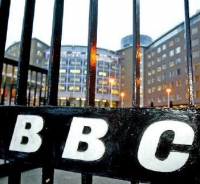World's No.1 Visa Specialist
Australia Partner Company
Australia Partner Company
16 Jan 2013

Study commissioned by the corporation shows that broadcaster gave back nearly twice its license fee spend.
The BBC boosted the UK economy by more than £8bn – nearly twice its licence fee spend – but gains in the north of England were offset by a decline in economic benefits to Wales and elsewhere in the English regions, according to a new report the corporation commissioned.
Published on Tuesday, the report said the corporation generated more than £8bn of economic value in 2011/12 by spending £4.3bn on its TV, radio, online, commercial and other activities.
The bigger, "gross value added" (GVA) figure, totalling £8.3bn, includes the knock-on effect of BBC spending further down the supply chain.
But while the GVA in the north of England grew 19.7% on the previous year to £391m on the back of the BBC's investment in its new BBC North premises in Salford; the Midlands region, including the east and West Midlands and East Anglia, saw its GVA fall 21.7% to £199m.
Wales also saw the economic benefits slip back, by 6.2% to £276m, as BBC spending fell to £154m from £162m in 2009/2010.
The south, including the south-east and south-west of England, was also down, 18.8% year-on-year, to £699m.
BBC insiders have previously expressed concern that the emphasis on BBC North might see other regions suffer, with the axing of the TV and radio factual department in BBC Birmingham in the West Midlands, part of the Delivering Quality First cost-saving measures.
However, despite the move of out of London to Salford of services and departments including BBC Sport, BBC Children's, Radio 5 Live and BBC1's Breakfast programme, the bulk of BBC spending remains in the capital.
Total BBC expenditure in London, of £2.98bn – generating GVA of £5.65bn – was nearly three times the total spent in the rest of England (£656m) and Scotland, Wales and Northern Ireland (£425m) combined.
John Tate, the BBC's director, policy and strategy, said the wider benefits of BBC spending were a strong argument against Ofcom's plans for a spectrum tax on broadcasters, due next year after they were put back from 2006.
"The wider benefit of the licence fee provides an extra reason for Ofcom to think again before it implements a spectrum tax next year: a levy on the spectrum broadcasters use to transmit their programmes," said Tate in a BBC blog post.
"As well as hitting licence fee payers, such a tax would remove much-needed cash from the UK's creative sector."
Source: http://www.guardian.co.uk/media/2013/jan/15/bbc-boosts-britains-economy-report
Posted On 13 Jun 2020
Posted On 12 Jun 2020
Hi! How can we help you?
Click below button to start chat
